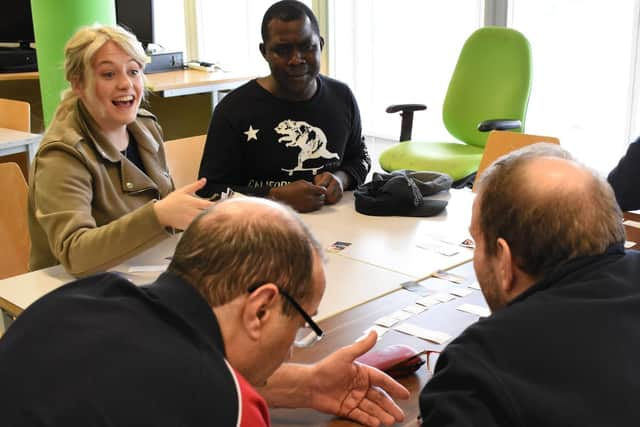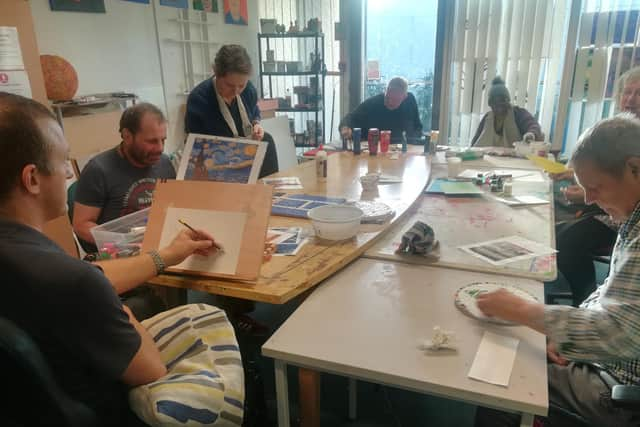Milton Keynes charity art group combats feelings of isolation for brain injury survivors
and live on Freeview channel 276
An online art group set up by Headway is helping brain injury survivors combat feelings of loneliness and isolation during the coronavirus crisis.
Headway Milton Keynes has been running art groups for those affected by brain injury at its centre on Avebury Boulevard for a number of years, enabling survivors to explore their creativity, work on their fine motor skills and socialise with peers.
Advertisement
Hide AdAdvertisement
Hide AdHowever, following the coronavirus outbreak, the day centre and the art sessions on offer had to come to a stop. This meant that some individuals were left with the prospect of nowhere to turn to in their times of need.


Thankfully, Headway Milton Keynes were quick to step in, introducing new virtual art classes that could help keep brain injury survivors motivated and engaged during a period of self-isolation.
Just before the charity had to close its day centre, service users were given art packs consisting of painting and drawing materials so they could carry on being creative in their own homes.
Now, twice a week, art tutor Sophie Bennett leads virtual classes where brain injury survivors.
Advertisement
Hide AdAdvertisement
Hide AdKirsty Rook, the charity’s service manager, said: “The virtual art classes have proven a great way for our members to socialise and stay in touch with one another.


“As well as stimulating the brain, the art classes can help to heighten confidence, increase communication, relearn physical and cognitive skills and improve emotional wellbeing.”
The charity has had a great response to the virtual art classes that have been set up, not only from brain injury survivors themselves, but from their carers too.
Kirsty said: “Thankfully, the art classes have meant that carers are given an hour or so, twice a week, to run errands, do the shopping, clean or just take some well-deserved time to focus on their own wellbeing while their loved one is taken care of – albeit it virtually.”
But these classes come at a cost to the charity.
Advertisement
Hide AdAdvertisement
Hide AdKirsty said: “The virtual services incur significant outgoings such as the art supplies, staff costs and the new technology needed to make it a success.
“This means that in order to continue providing such services and supporting brain injury survivors in the community, we rely on generous donations made by the public.”
To donate, visit the charity’s Virgin Money Giving page here